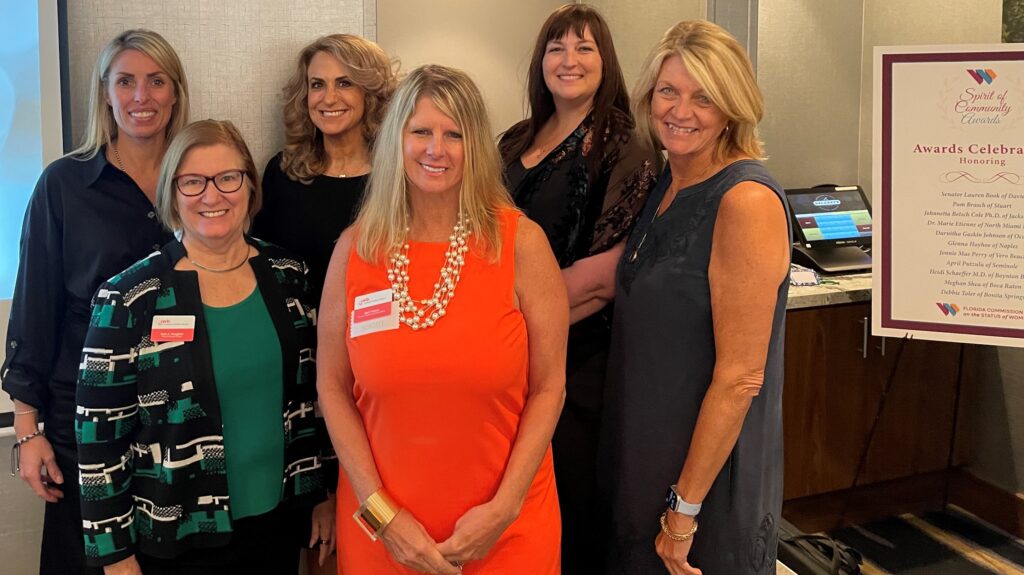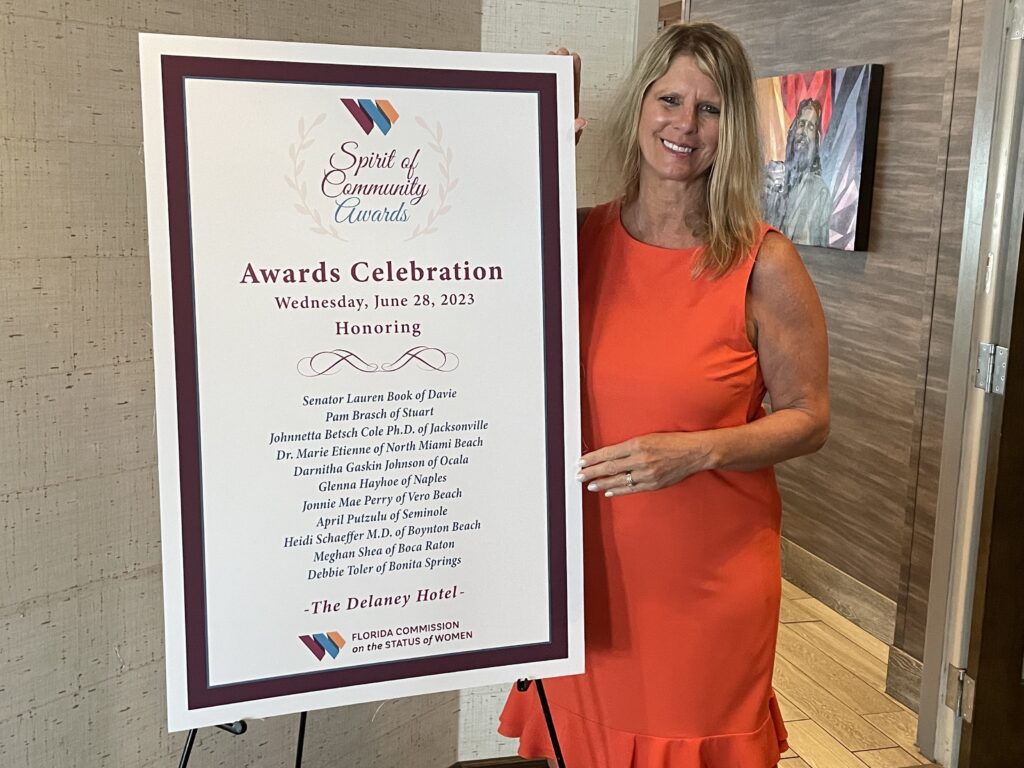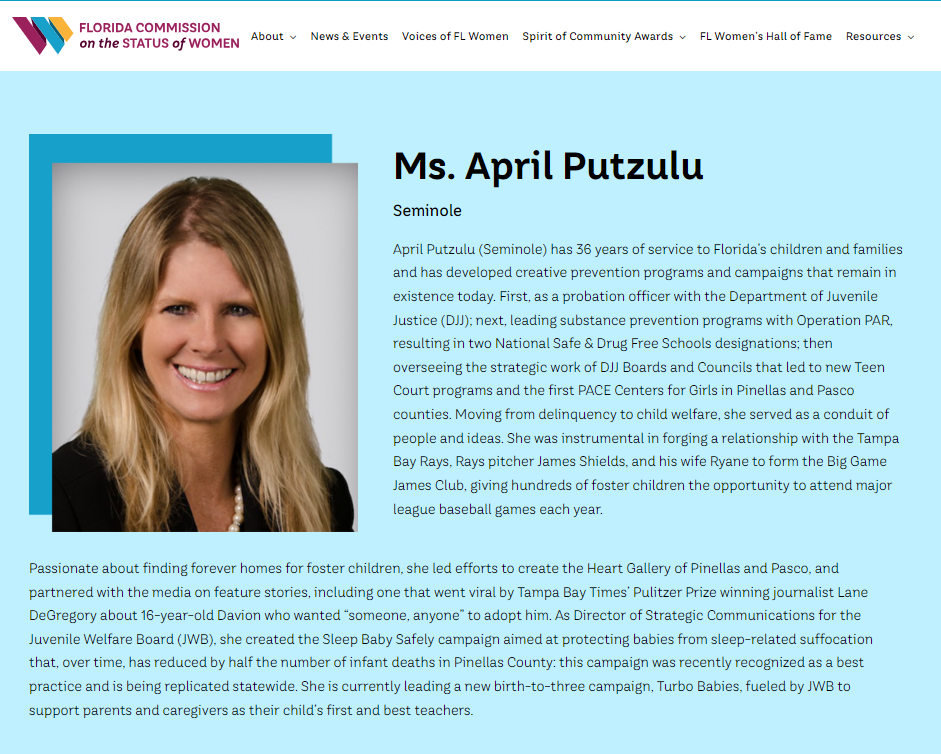“Hers is the swirl of skirts they watch for, the careful waves of honey-colored hair,” Shelby Oppel wrote for the St. Petersburg Times in a 1999 profile for a series titled “25 Who Mattered.”
“One glimpse, and a host can breathe again, enjoy the party, record the glittery success. Mary Wyatt Allen has arrived. Her presence has rare currency in St. Petersburg society…but it is in another, equally extraordinary world, where her reign has mattered more. It is a world of abused girls and homeless men, of the mentally ill and the hungry. Allen has worked a lifetime to help the people she was never born to be.”
The list of places Allen worked with, both before and after that profile, could make up this entire remembrance.
Here’s a fraction: All Children’s Hospital. Florence Crittenton Home. Christmas Toy Shop. YWCA. Centennial Celebration Activities Committee. Family Service Centers. She also served on an equally long list of city boards and committees. Another fraction: St. Petersburg Housing Authority. Juvenile Welfare Board of Pinellas County. St. Petersburg Firefighter’s Pension Board. Pinellas County Arts Council.
“I think just everyone knew that if you asked Mary Wyatt to volunteer for something, not only would she jump in, she would get the job done,” said son Niel Allen.
Allen died May 19 at 90 of natural causes. She leaves behind dozens of causes that are in better shape because of her.
Not Mary
“She is the first to say she is lucky she could give so much,” that 1999 profile reported. “Her father was Nathaniel W. ‘Niel’ Upham, the man who built Shores Acres … With family money and a knack for investing, she never needed to do more than raise her two sons — alone for the most part after an early divorce. But she did much more, with stubbornness and grace and a notorious precision.”
Allen’s father helped spur the foundation of All Children’s Hospital. Her mother lobbied for the county tax authority to raise money for children’s services and juvenile welfare. She took their example, son Niel Allen said, “and ran with it, and it went to levels beyond what I’m sure they could have imagined.”
Allen was known for getting things done. And if you didn’t know her full first name was Mary Wyatt, you soon would.
More than a few people have their own “not Mary” stories, friend Elise Minkoff said.
“It’s a club with a unique membership because you truly only make that mistake once.”
Allen became a mentor for Minkoff and showed her that volunteering isn’t glamorous work.
“You are never just to chair a committee,” Minkoff said. “You must be able to step in and do the things that need to be done to fulfill a charity’s mission, whether it be stuffing envelopes, packing food. No job was too small and no job was too big.”
But when Allen did it, it was work that broke barriers.
“She wasn’t exactly a feminist, she liked to have men open doors for her and things like that,” said Niel Allen. “But she was able to sit at a boardroom table with men on an equal level, and she did command respect.”
“She was ahead of her time. Her mom was ahead of her time,” Minkoff agreed. “It’s been a generation of women who advocated for our community and served on boards where women didn’t serve and didn’t do it for the glory and didn’t do it for anything but the fact that they were serving.”
When Pigs Fly
Allen’s accomplishments match her long list of causes.
Her work earned her the first Ms. Sun award from civic group The Suncoasters. Before her, there had only been misters. She helped raise money to enlarge and modernize the St. Petersburg Museum of History. She was one of a few people who helped open the Palladium Theater. She spent eight years with the Juvenile Welfare Board, the Times reported in 1999, “where she steered a mismanaged group back into voters’ good graces, even helping it win a tax increase to better aid struggling children.”
Allen brought logic to every cause and group she worked for, said longtime friend Sharon Jackson. And in her home, Allen had a whimsical collection that showed her gumption.
“She had a collection of flying pigs,” Jackson said.
Allen believed in St. Petersburg. And she believed that, with dedication, anything was possible.
“It was the way she functioned,” Jackson said. “If she saw a need and she had answers to it, even if it was far out, she worked for it and got it done.”
Read the article, and additional images, as originally published at https://www.tampabay.com/life-culture/2023/06/17/mary-wyatt-allen-obituary-st-petersburg/







